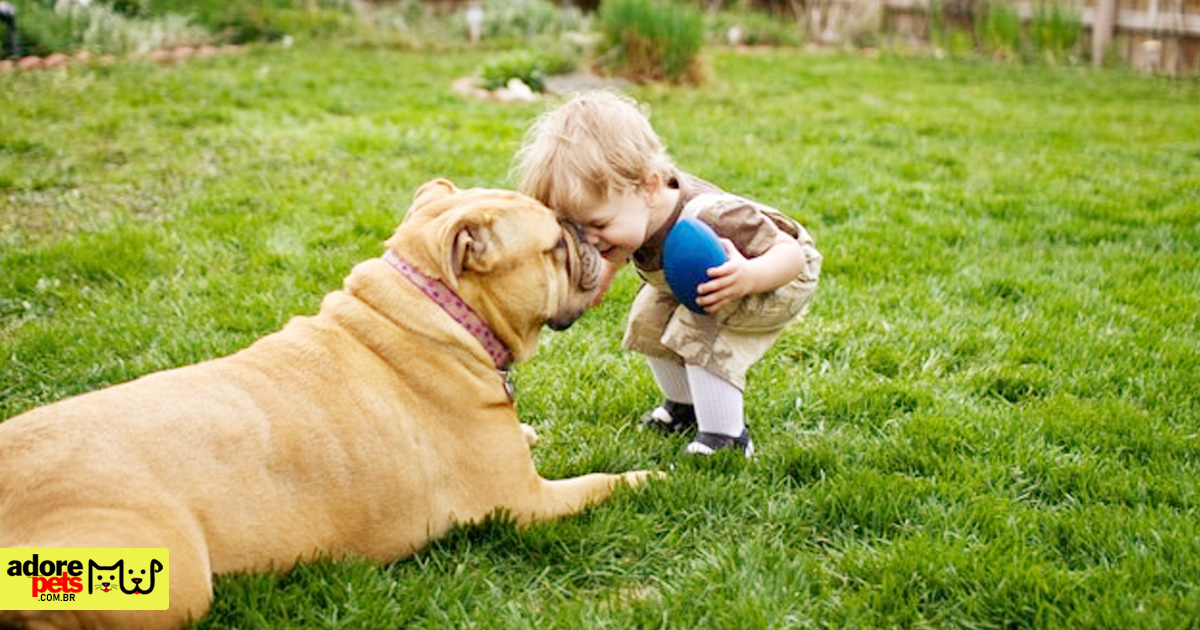
The importance of having a dog in children’s lives
The relationship between children and pets, especially dogs, is one of the most precious and enriching childhood experiences. In addition to being loyal and loving companions, dogs play a significant role in children’s social, emotional and educational development.
In this article, we’ll explore the importance of having a dog in raising children, highlighting the proven benefits of this interaction.
Increased children’s responsibility and autonomy
Taking care of a dog requires dedication and responsibility. By involving children in the daily tasks of caring for a pet, they learn important lessons in responsibility, such as proper nutrition, hygiene, exercise and care for the animal’s health. These responsibilities help children develop organization, discipline, and commitment skills, as well as fostering a sense that their actions directly affect the well-being of another living being.
Stimulation of social and emotional development
Dogs are social beings by nature, and interacting with them can promote children’s social and emotional development. By taking care of a dog, children learn to interpret and respond to the animal’s signals and needs, improving their non-verbal communication skills. In addition, the presence of a dog provides emotional comfort, reducing stress and anxiety in children. The emotional connection between a child and his dog can help develop empathy, compassion and the ability to express and understand emotions.
Promotion of physical activity and health
Dogs are active and energetic animals, which encourages children to get involved in physical activities. Playing, running and walking the dog are fun forms of exercise, contributing to children’s cardiovascular health and physical development. In addition, regular physical activity associated with caring for a dog also helps prevent health problems such as childhood obesity.
Encouraging learning and cognitive development
Having a dog at home creates an environment conducive to stimulating learning and cognitive development in children. By teaching a dog basic commands, children improve their verbal and non-verbal communication skills, as well as their ability to follow directions and set boundaries. In addition, dogs are great listeners and partners for reading practice, stimulating language development and text comprehension.
Strengthening family bonding
Having a dog in the family strengthens the bond between members. Shared responsibility for caring for the animal promotes cooperation and teamwork. Activities related to the dog, such as feeding, walks and games, provide moments of conviviality and family fun. These shared experiences create affective memories and strengthen family ties, promoting an environment of support and affection.
Development of values and ethics
Living with a dog can also teach children important ethical values and principles. By caring for a pet, children learn about respect, compassion, responsibility and empathy. They understand the importance of treating animals with care and kindness, and they internalize these values into other areas of their lives. Also, by observing the dog’s loyal and loving behavior, children learn about loyalty, trust and gratitude.
Stimulating creativity and imagination
Dogs are inexhaustible sources of inspiration for children’s creativity and imagination. They make up stories, jokes and even create drawings and art inspired by their four-legged friend. Interaction with the dog awakens children’s imagination, stimulating their ability to create and invent.
Conclusion
Having a dog in children’s education brings a number of proven benefits. From developing responsibility and autonomy to promoting physical activity, health, learning and ethical values, the presence of a dog in children’s lives is extremely enriching. In addition, the relationship between children and dogs strengthens family ties and provides moments of joy, affection and mutual growth.
However, it is important to emphasize that the decision to have a dog must be well planned and consider the family’s ability to properly care for the animal. Dogs require time, dedication and financial resources. Therefore, before purchasing a dog, it is essential to research the breed, its specific needs and the responsibilities involved.
In short, when the decision is taken responsibly, the presence of a dog in children’s education brings countless benefits that contribute to their growth and development in a positive way, making this relationship a true partnership of love, learning and happiness.



